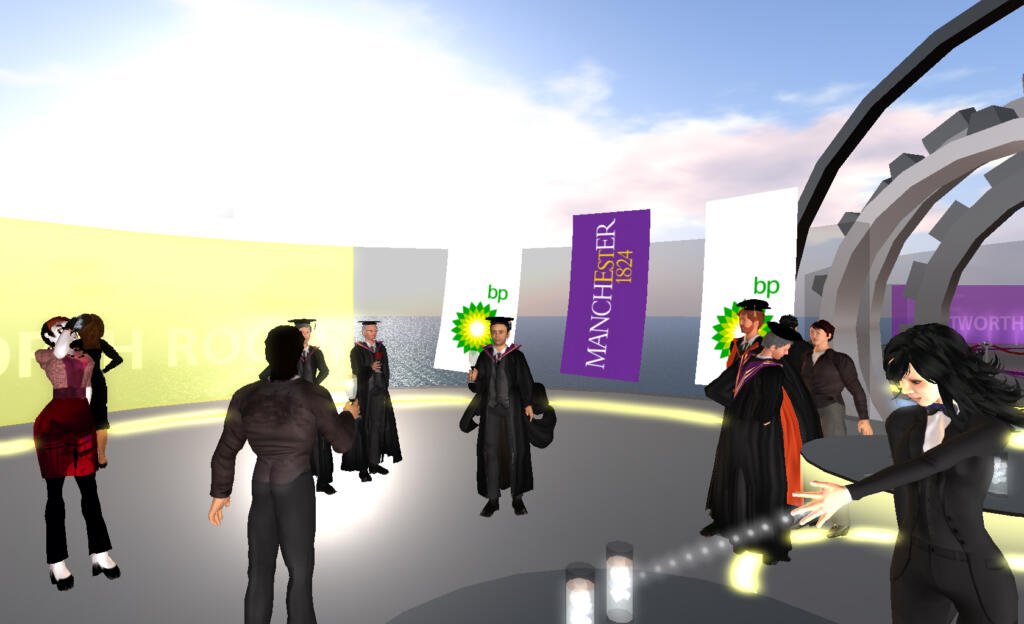Non-fungible tokens use cases are still evolving with more industries incorporating Web3 and blockchain technology into their business models. Today we look at ways in which educational institutions and the education industry can use NFTs.
An NFT is a smart contract stored on a blockchain, making it an indisputable digital record of ownership or purchase of a digital or physical asset.
NFT technology and other Web3 technologies such as the Metaverse, Extended Reality and Virtual Reality will change how educators and students teach and learn.
Education industry
One industry that will benefit greatly from embracing Web3 technology is the Education space. There are numerous ways in which NFTs and VR will greatly enhance the learning experience.
Schools and universities will hold digital courses, virtual science experiments and even simulated surgery for trainee surgeons in different virtual worlds within the Metaverse. The possibilities are endless.
NFTs will also be a key component in education with many uses, including your key to entering metaverses.
Let’s look at 4 use cases for NFTs in education.
Schools display student assignments as digital art
Over the last year and a half, we watched how digital art transformed from a fringe industry to mainstream, with the established art world, enthusiastically embracing digital collectibles. Sotheby’s recent sale of an FC Barcelona NFT for $693,000 is a case in point.
Now, what is to stop schools or higher education institutions from showcasing and selling their students’ work as NFTs?
Schools can highlight their student’s creativity to a global audience and the NFT community is eager to support new artists.
Different departments within higher education, including artists, digital illustrators, game developers, fashion designers, musicians, and others will exhibit their work as digital content.
The creators can attach a monetary value to their artist expressions and put their NFTs up for sale on NFT platforms. At the same time, they may develop entrepreneurial skills and marketing as a by-product. Moreover, creators can also apply lifetime royalties to all subsequent sales.
Diplomas and resumes as NFTs
Throughout our academic life, we accumulate a lot of paper. Gathering these certificates of achievement, diplomas, and transcripts each time you apply for a new position can be frustrating.
Plus in the US, there is a cost incurred when retrieving certificates from schools and higher education establishments each time you need one sent out. The records should be the student’s property. NFTs will allow for students to keep their records as they can no longer be altered without a record of it happening.

Furthermore, in today’s world, there are a lot of fake diploma factories churning out false certificates. NFTs will end this cheating. With NFTs, we can store all educational credentials, academic certifications, and experiential evidence on the blockchain, where they will be easier for future employers to verify.
Already some universities are giving out certificates of completion. Duke University gave out NFTs to learners who completed Duke engineering courses on the fundamentals of blockchain tech. The University minted 22 NFTs for those who completed recent sessions relating to NFTs as part of a Financial Technology Degree.
Another is the New Media Institute at the University of Georgia which recently presented program certificates as NFTs. Although issued more as a fun way to further engage learners with new tech, John Weatherford, a senior lecturer in the NMI stated, “In the future, one could imagine NFTs as part of the college credentialing experience,” he went on, “Instead of having just a paper certificate, the students have a unique, verifiable digital credential to share with employers.”
Storing student records
Think of the amount of paper and educator working hours involved in accruing and storing student records. NFTs and blockchain tech will acutely reduce both these time wasteful practices.
Academic institutions will incorporate smart contracts in their online courseware. When a learner has completed a lesson or reached a milestone in the course it can be automatically stored on the blockchain and an NFT awarded as authentic proof of completion.
Another use for NFTs is with student rewards. For many years in elementary and High schools, teachers have been handing out merit badges to students to recognize learning moments. In the future, NFTs will be minted and the digital files stored as part of a student’s authenticated lifelong learning file.
Digital textbooks
Education companies can also use NFTs and publish their course books as digital assets. They can then make profits from secondary sales of their books. They can do this by adding a percentage of the resales clause into the smart contract.
Already the American education publishing giant Pearson is looking into how they can collect royalties from all subsequent sales of their digital class material. This is a piece of the pie that publishers have been unable to profit from up to this point.
Afterthoughts
In the future, all academic achievements will be stored as digital assets in digital portfolios. Moreover, we are going to see the educational sector become enveloped in the VR and NFT space.
We will have universities in the metaverse offering degrees where the study is done in virtual settings and NFTs are a key component of the whole Web3 scene.
As we have said before, NFTs are on a journey to change many aspects of our lives. This emerging trend is only in its infancy. You can stay in the know with NFT news today.
Author
-

NFT enthusiast who delves into the intricacies of digital ownership with a discerning eye.




